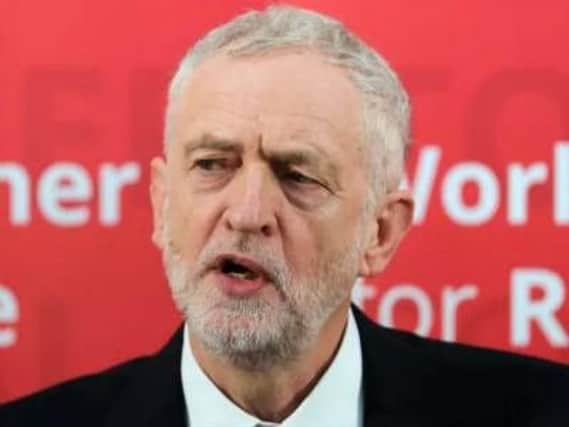Labour branded 'shambolic' as Corbyn fails to commit to Trident


Delivering a keynote speech on the party's approach to security and foreign affairs, Mr Corbyn sought to silence critics who have accused the Labour leader of being weak on defence.
But while he made it clear that he would be willing to consider “military action” in “some circumstances”, he did not confirm whether he would be prepared to use Trident or back its renewal if elected as Prime Minister.
Advertisement
Hide AdAdvertisement
Hide AdDefence Secretary Michael Fallon was quick to attack the Labour leader, describing him as “dithering” and claiming he would “put Britain’s security at risk”.
The address at Chatham House was seen as an opportunity for Mr Corbyn to reverse the party's fortunes following a disastrous week, in which copies of his draft manifesto were leaked to the press.
The former chair of the Stop the War Coalition used his speech to refute claims that he is a "pacifist" and to assert the need for a new, less interventionist approach to foreign policy.
Mr Corbyn began by criticising Western interference in countries such as Afghanistan, Somalia and Yemen, describing "regime change wars" in Iraq, Libya, and Syria as a failure that have "made the world a more dangerous place".
Advertisement
Hide AdAdvertisement
Hide Ad"This is the fourth General Election in a row to be held while Britain is at war and our armed forces are in action in the Middle East and beyond. The fact is that the ‘war on terror’ which has driven these interventions has failed," he said.
Turning his attention to Theresa May, he accused the Tory leader of "pandering" to the "erratic" Trump administration in the US.
Using the Prime Minister's own campaign slogan against her, he warned that re-electing the Conservative into government would result in a "coalition of risk and insecurity" with Donald Trump.
more to follow